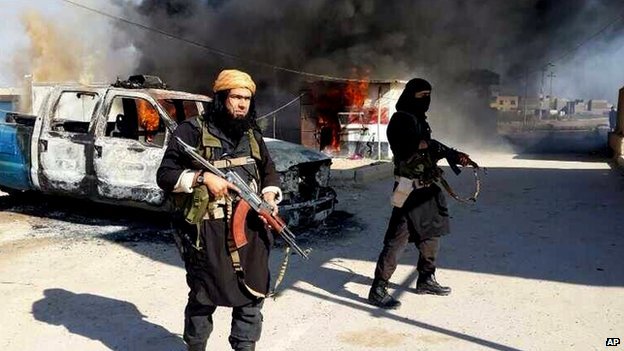
Last month I interviewed one of the most remarkable people I think I might ever meet. His name was Jurgen Todenhofer. But if that doesn’t ring a bell, his story might. The German journalist is an author, politician and former judge who invited himself to be a guest of the so-called Islamic State group and stayed with them – in Syria – for ten days. He was keen, he told me, “to see the other side”.
“Why weren’t you beheaded?” I asked. “Because I’d signed a contract with them,” he said. “And I knew they’d stick to their word.” Foolhardy? Or the essence of faith? I couldn’t decide. But he’d lived to tell the tale.
What fascinated me was his description of IS from inside. They are all obsessed, he told me, with television. They had offered to carry out individual random acts of brutality for him – amputations, assassinations – with the sole purpose of getting publicity. They were desperate, in other words, to get into his holiday snaps.
And that was the point I felt physically sick. The idea that television could be actively doing terrorists’ work for them – the unassuming pyramid seller that knocks door to door, entering people’s homes as they put their kids to bed; sanitising the unimaginable for daily evening news bulletins.
Because that, as we know, is how IS and its hangers-on work. One act, one killing. Worldwide traction. The Kardashian-isation of terror. Every channel. Every page. Tweet after tweet. Hour after hour. At times I have felt part of that cycle – covering events in Paris on the very day workers at a satirical magazine were shot down in cold blood in their office. Or ten months later, back in that same city as gunmen and bombers besieged a concert hall, a stadium and the most innocuous of local cafés and restaurants around the capital.
Could we have chosen to report nothing? To stay at home? Of course not. The oxygenation of terror happens through a thousand different routes these days – multiple channels and single tweets. Mainstream media have a duty to report the facts to audiences and we make all such editorial decisions carefully: the last thing the media want is to drive viewers to IS’s dedicated propaganda channels.
So what is the way we should handle these stories? Some have suggested the media should do a better job of filtering IS propaganda. Equally as fraught is the naming of the organisation itself. One TV correspondent apparently got so tongue-tied trying to remember the acceptable terminology he blurted out “the so-called fight against Islamic State”.
Psychologists sometimes talk of the “winner effect” – a group emboldened by its success can sometimes propel itself to further victory. Thus a narrative of IS dominion is created. But the opposite is also true. In the past 15 months IS has lost the Iraqi cities of Tikrit and Ramadi, as well as key commanders. So is the “loser effect” something news outlets should deploy, shouting every failure loudly from the rooftops? Or does that just confuse the media’s role in distinguishing news from propaganda?
In the end, what IS wants – and what, despite our best efforts, journalists sometimes deliver – is to make itself seem a greater presence than it is. It is only one force, by no means the only force, that matters in these complex wars.
Perhaps the best defence is to make sure we cover IS, and indeed the many linked factors around it, with more depth, more explanation, more wit (I use the word cautiously). To cover and report on the world properly is to replace fear with understanding. It’s a big ask, but we’re giving it a go.
